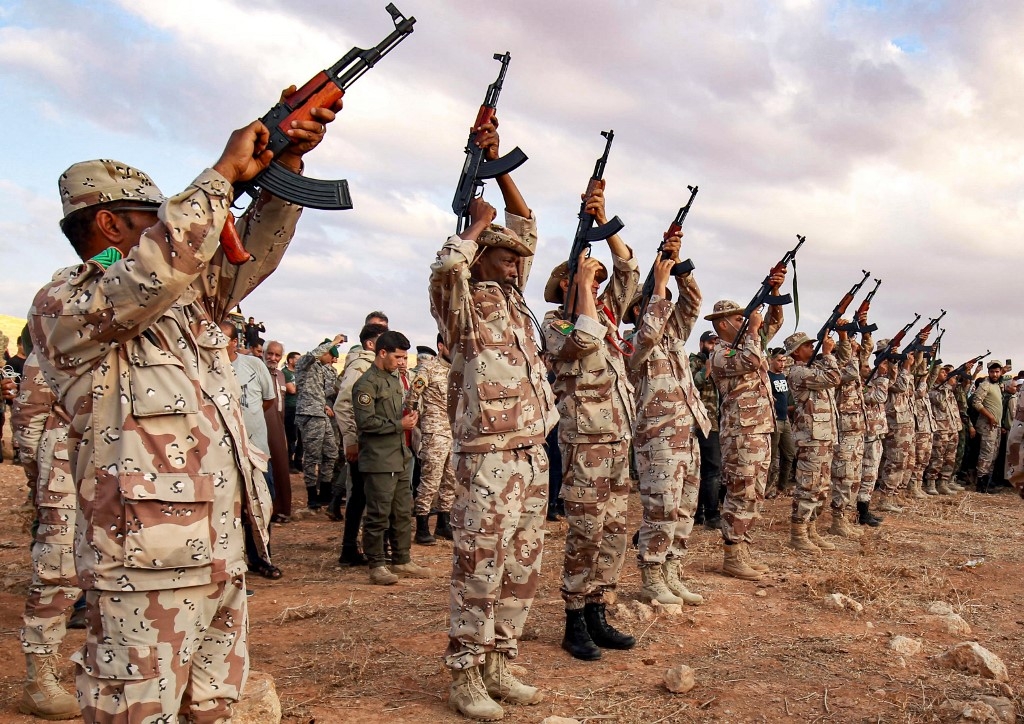US calls on Turkey and Russia to 'immediately' withdraw forces from Libya

The United States has called for the immediate withdrawal of Russian and Turkish forces from Libya after a United Nations-mandated deadline for them to leave was left unanswered.
Under a United Nations-brokered ceasefire signed in October last year, foreign troops and mercenaries were mandated to pull out of Libya within three months.
That deadline passed on Saturday with no movement to leave announced or observed on the ground.
"We call on all external parties, to include Russia, Turkey and the UAE, to respect Libyan sovereignty and immediately cease all military intervention in Libya," Richard Mills, acting US ambassador to the UN, said on Thursday during a UN Security Council meeting on Libya.
"Per the October ceasefire agreement, we call on Turkey and Russia to immediately initiate the withdrawal of their forces from the country and the removal of the foreign mercenaries and military proxies that they have recruited, financed, deployed and supported in Libya."
Stay informed with MEE's newsletters
Sign up to get the latest alerts, insights and analysis, starting with Turkey Unpacked
Since disputed elections in 2014, Libya has been divided between competing administrations, with the UN-recognised Government of National Accord (GNA) supported by Turkey, while the UAE and Egypt have backed forces loyal to renegade commander Khalifa Haftar.
Haftar, who controls much of the country's east, including lucrative oil fields, failed in his bid to wrest control of Tripoli last year, ultimately leading to a stalemate with the GNA.
After agreeing to a ceasefire in August 2020, the peace deal signed by the two warring sides was supposed to see the departure of all foreign fighters from Libya, except for the UN's forces.
Washington's statement comes one year after a summit in Berlin brought together key international players in Libya, with world leaders pledging to end foreign interference and work towards a permanent ceasefire.
The UN estimates there are about 20,000 foreign troops and mercenaries fighting amongst opposing sides in Libya, and UN inspectors have also recorded dozens of Russian flights into Libya throughout much of last year.
Last December, Ankara extended its authorisation for troop deployment to Libya by 18 months, in apparent disregard of the ceasefire deal.
CNN reported last week that the Russia-backed Wagner Group mercenaries were digging an enormous trench extending from the city of Sirte to al-Jufra, a stronghold of Wagner mercenaries.
Washington has for months accused the Wagner Group of providing support to Haftar in violation of a UN arms embargo on the country. Moscow, meanwhile, denies that it is interfering in the country, and denies links to the mercenaries.
A report in the Times of London said on Wednesday that US forces had captured a Russian missile system in Libya, which was purchased by the UAE and sent to forces loyal to Haftar.
The Pentagon told Middle East Eye that it was aware of the report and it "opposes all foreign military intervention in Libya".
"We remain fully committed to ensuring advanced weapons systems neither enter Libya nor are proliferated from Libya into the hands of dangerous actors, and further stoking violent conflict in violation of the word and spirit of the arms embargo," Pentagon spokesperson Commander Jessica McNulty told MEE.
Middle East Eye delivers independent and unrivalled coverage and analysis of the Middle East, North Africa and beyond. To learn more about republishing this content and the associated fees, please fill out this form. More about MEE can be found here.





